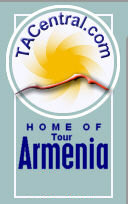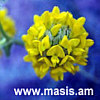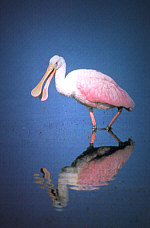 |
||||||||||||||||||||||||||||||||||
|
||||||||||||||||||||||||||||||||||
|
||||||||||||||||||||||||||||||||||
|
|||||||||||||||||||||||
 |
|||||||||||||||||||||||
| - | |||||||||||||||||||||||
|
||||
If you are new at bird-watching, using a field guide will prove invaluable. The Birds In Armenia Field Guide includes a chapter on what to look for in determining bird types, plus detailed descriptions of each bird's features, habitiat, behavior and nesting habits. For the beginner, eyes and ears are good enough to begin spotting birds. Binoculars or a spotting scope are recommended for more detailed sightings (and to avoid encroching on nesting areas), esp. for falcons, kites, eagles and buzzards in flight, which carry disinctive markings on their under-wings. Like stargazing, a 7x40 or 7x50 will be quite enough. Bincoulars are expensive, so be sure of the magnification and field of vision before you buy. Move carefully and dress to blend in with your surroundings, look for a good hiding spot, and be prepared to wait a spell. Bird-watching is not for the hyperactive or the impatient. Good spots to hide are behind rocks and bushes, or in tall reeds and grass. Be careful you don't accidentally walk into a nest, though. Good times to observe are early in the morning when birds first feed, and in the evening before they nest for the night. In all regions of the country, good places to begin observations are by rivers, ponds springs and lakes. Even the most stubborn cliff or desert dweller will visit their nearest safe watering hole during the day. The variety of birds in Armenia is at its greatest in the Spring (March-May), during the northward migration. The variety available for observation in the lowlands and by water areas includes birds that normally inhabit upper elevations, but nest near marshes and rivers. Autumn (September-November) is also a good time to observe Southward Migrations, including the only time to spot the Greater Flamingo, a rare visitor which favors Lake Sevan. A notebook for making records of sightings is helpful, and will assist conservation efforts if a rare or uncommon sighting is recorded. If you intend to make records that will be shared with others (and useful to conservationists), always include the following in your entries:
For rare or endangered species, these records should include all of the above, and add
Endangered Species The Birds In Armenia Project are the authors of the field guide, "The Birds of Armenia", the only printed source on this topic. They are also the only group working to exclusively conserve bird habitats. They offer tours and guided visits, for a fee. You can reach them in Yerevan by calling Dr. Martin Adamian or his assistants Levan and Luba at (Tel (3741) 151-413, 28-15-02).
BIRDING
WEB SITES ERMC
INDIVIDUAL
TRIP REPORTS GUIDES
/ TRIPS
|
| |
Search | |
||||||



